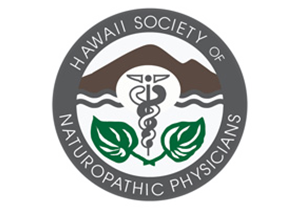Aloha, Kailua Kona, Norovirus has hit the Island and it has hit hard. It is likely that you or someone you know has come down with the “stomach flu” lately and so I thought I’d give a friendly public service announcement about what you can do to weather this nasty bug. 
The Norovirus is a family of viruses that cause acute gastroenteritis, known commonly as the stomach flu. This term is a misnomer because it is not at all related to the influenza virus. Since the rotavirus vaccine is now commonly administered, the norovirus has overtaken rotovirus as the #1 cause of diarrhea in children in the US. It is highly contagious and can cause disease from exposure to as little as 18 virus particles. It is commonly contracted through contact with infected material like stools, vomit or contaminated water. Virus particles can live on objects touched by someone with contaminated hands and can even be spread through the spraying of pesticides mixed with contaminated water. Symptoms usually begin 24-48 hours after exposure and last 1-3 days. A person is most contagious when they are showing symptoms but some people can continue to be contagious for up to 2 weeks. 1-4
Typical symptoms include:2
- Acute-onset of vomiting
- Watery, non-bloody diarrhea with abdominal cramps
- Nausea
So, what can I do to prevent norovirus?
- WASH YOUR HANDS. I mean it. Wash obsessively when around people who are contagious. Before eating, after eating, after using the restroom and changing diapers. Twice.
- Wash your children’s hands. They are beautiful and we love them, but kids are little petri dishes for diarrheal diseases.
- Wash your fruits and vegetables.
So, what can I do once I have norovirus?
- There is no medication that can kill the virus or make it go away, so the best remedies are those that come from our Grandma’s:
- STAY HOME! Do not expose others and allow yourself time to recover
- Drink plenty of fluids. Water can be hard on a nauseous stomach; try soda water or natural ginger ale.
- Dehydration is the biggest complication. Try the following rehydration suggestions:
- The simplest and most proven rehydration fluid is Pedialyte or some other similar commercial brand
- Rice water as a natural and inexpensive rehydration formula has been researched and recommended around the world.5 This is easy to make, shown to be effective and not made by the Coca Cola Corp. (a nice bonus).
- A popular drink that is made in Guatemala for preventing dehydration is: Soda water with the juice of 1 half lemon and ½-1 tsp salt. This is gentle on the nauseous stomach and helps replenish lost salts, although is not a suitable rehydration replacement a severely dehydrated person.
- Diet:
- Chicken, veggie or bone broth only is best during acute symptoms
- Once solid food can be tolerated, follow the BRAT diet: bananas, rice, applesauce and toast
- Avoid dairy. Acute inflammation in the small intestine can damage the cells carrying lactase receptors making you temporarily lactose intolerant.6 Eating dairy during a period of lactose intolerance can cause gas, bloating, pain, nausea and diarrhea… all the symptoms from which you are trying to recover!
- Herbs:
- Ginger and peppermint can both help alleviate nausea
- Fresh rosemary tea with lemon is a folk remedy for diarrhea in Guatemala (although is probably most useful in bacterial gastroenteritis)
- Infants
- Dehydration is especially serious in infants. Call your pediatrician immediately if you observe any of the following in an infant with diarrhea and/or vomiting:
- Dry mouth, crying without tears, sunken soft spot, lethargy, or going 8 hours without producing urine.
- If the baby is breast-fed, continue nursing. Breast milk is not only rich in antibodies against the virus, but it is also primarily made of water and combats dehydration.
- Babies who can take solids should follow the same dietary guidelines as above
- A baby’s bottom is more likely to become irritated from diarrhea than normal poop, so change diapers regularly and clean bottoms with a soft, water-moistened cloth rather than wipes (which contain irritating chemicals).
- Dehydration is especially serious in infants. Call your pediatrician immediately if you observe any of the following in an infant with diarrhea and/or vomiting:
- Most importantly, if your symptoms persist beyond 3 days, and are severe and relentless, or you see blood or mucus in your stools, contact a physician.
- If you see signs of severe dehydration (lightheadedness, extreme lethargy, extreme thirst, little-to-no urine or rapid heartbeat) contact a physician for IV rehydration
References:
- http://health.hawaii.gov/docd/dib/disease/norovirus/
- http://www.cdc.gov/norovirus/hcp/clinical-overview.html
- Payne DC, Vinjé J, Szilagyi P, et al. Norovirus and Medically Attended Gastroenteritis in US Children. N Engl J Med. 2013;368:1121-1130.
- Potera C. Pesticide Spraying May Spread Norovirus. Environ Health Perspect. 2013;121(5):a148
- Ho TF. Oral rehydration solution; Rice water is cheap and effective. BMJ. Nov 3, 2001; 323(7320): 1068.
- Heyman M. Lactose Intolerance in Infants, Children, and Adolescents. PEDIATRICS. 2006; 118(3):1279 -1286
- http://www.drgreene.com/qa-articles/diarrhea-infants/

